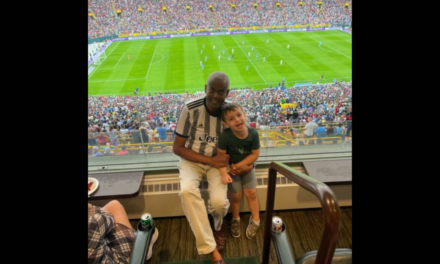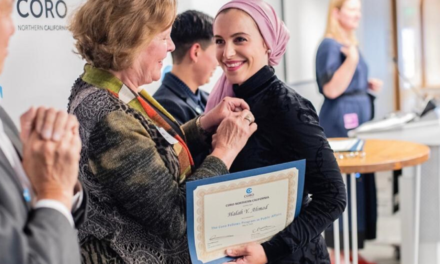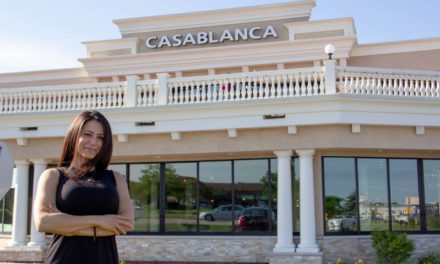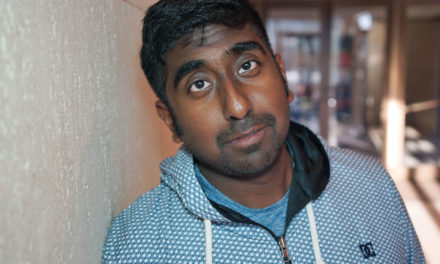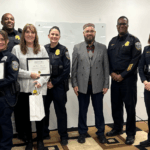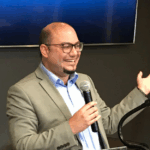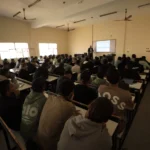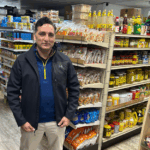Photo©:
Blazingcatfur.com
Successful entrepreneur urges Muslim community to broaden career options
Last week we introduced Kenan Saleh, the young entrepreneur from Fond du Lac who, at 21, sold his advertising company Halo, with an estimated value of up to $8 million, to the nationwide rideshare company Lyft. Saleh, now 23, lives in New York City, and is head of product for Lyft Media. Forbes Magazine recently honored him with a listing in its Forbe’s 30 Under 30.
Saleh wants to start a discussion in the Muslim community about career options for youth. The Wisconsin Muslim Journal is giving him the floor.
In a recent interview, the successful entrepreneur raised questions about the pressure on Muslim youth to pursue a small number of professions and how it limits success not only for individuals but for the entire Muslim community.
What do you want to be when you grow up—a doctor or an engineer?
“Most families force their children into a certain archetype of success and, if they don’t meet that archetype, there may be extreme tension between the parents and the children,” Saleh observed. “I think it stifles a lot of creativity and innovation that could be happening in our communities.
“Although well intentioned, this pressure leads to a lot of unintended negative effects,” he said. It keeps youth from exploring different career paths and interests, and from developing new skills. “If they can’t explore other opportunities, they are obviously not going to be successful at them. It restrains our communities from becoming richer, better, more diverse and more successful than they currently are.”
“Career diversity is good for the community”
“Muslims are overrepresented in medicine, but underrepresented in almost every other field—law, business, technology, entertainment,” Saleh said. “In those spaces, there is no representation of our views or who we are. That leaves it to other people to determine our fate and tell our stories for us. And I think that is a shame.
“Because there is such an underrepresentation of Muslims in politics, we don’t have policies created with us in mind. We are not there representing our own views and our own interests.”
At the same time, encouraging diverse interests would lead to a richer community internally, he said. “With a diversity of careers, interests and perspectives in the community, we can learn from each other.
“I feel very strongly about this. I will talk to anyone who will listen about this issue because I think it is that important.”
Saleh’s story
When Saleh’s father, Dr. Haydar Saleh, finished high school in Syria, he earned a top score on the nationwide exam, giving him the option to pursue any field he wished. He had his sights set on studying advanced physics in Germany in a government-sponsored program.
“The whole family vetoed it,” he recalled. “They decided I would go to medical school even though I had never thought about it before that moment. Given our social life and culture, it was very difficult to go against my family and parents.”
He spent the first two years of medical school agonizing over the loss of his first choice, he said. “Then I decided to convince myself, this is the life I am going to live. I have to do this career and make the best of it.
“Years went by and now I can’t imagine myself doing anything besides medicine because I enjoy the profession very much,” he added.

Yet, when the time came for Dr. Saleh to advise his sons, Kenan and Khaled, about their education and future careers, he recommended a career in medicine.
“I told Kenan I do like the medical field and would really like for him to consider it, but I would not go against his choice. If he wanted to go for a business career, he would have my blessing. I never applied pressure on him,” Dr. Saleh said.
That’s true, Kenan confirmed. “When I said I wanted to be an entrepreneur instead of a doctor, my parents said, ‘We are disappointed but do whatever you think is best,’” he recalled. “I think they trusted me. That was a good first step. Most parents wouldn’t even go there.
“The next step is encouraging young people to pursue their own interests. That is something our entire community needs to improve on.
“The biggest thing I tell everybody is it doesn’t really matter what you do, but whatever you do, you need to love it. Do something you would do even if it wasn’t a job and even if you didn’t get paid to do it. You just wake up every day looking forward to it.
“If you do that, you can have an amazing career and a huge impact on the world,” Saleh said. “That is how you reach breakthrough innovations and that will lead to unusual but very influential career paths, but none of that is encouraged.
“That won’t change until we change the incentives of our community structure. What do parents praise our children for doing? What do parents encourage their children to do? Who gets the prestige and accolades from other people in the community?
Encourage big dreams
Kenan Saleh wants “to be an entrepreneur for life. One of my goals is to scale my impact so that I do not just affect one company or one set of individuals, but to impact large swaths of the world.”
He is happy to dream big and believes others should be able to also.
“Some people say, ‘That sounds nice, but not for my children.’ The other counter I hear is, ‘You are a rare case.’
“I believe everyone should be given the opportunity to try things. You have to accept some amount of failure. The reluctance in our community stems from severe risk aversion. No one wants their child to be the first one to do something new.
“The ones who succeed may be doing something so groundbreaking that they open entire new pathways. They will enter new places and other people can follow that path.”

